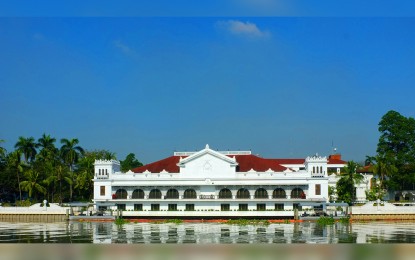From the Philippine News Agency (Jan 25, 2021): Palace calls on nations not to escalate tensions in SCS (By Azer Parrocha)

Malacañang is urging nations to exercise restraint after China recently passed a law giving power to its coast guard to fire on foreign vessels and demolish structures built in the South China Sea (SCS).
In a press briefing on Monday, Presidential Spokesperson Harry Roque called on nations, particularly claimants to the contested sea, not to escalate tensions as it could worsen the ongoing maritime dispute.
“Sana po walang gagawin ang kahit na anong bansa dito sa usaping West Philippine Sea na magpapalala pa po ng sitwasyon (I hope countries would not to anything in relation to the West Philippine Sea issue which could make the situation worse),” he said.
He reiterated President Rodrigo Duterte’s call to pass the Code of Conduct for the SCS.
“Ang deklarasyon po ng ating Presidente tapusin na po natin ang ating code of conduct at lahat po sana ng mga claimants sa West Philippine Sea ay sumunod sa code of conduct (The declaration of the President is to finish a code of conduct and that all claimants of the West Philippine Sea follow this code of conduct),” he added.
In 2019, the Asean and China completed the first reading of the draft of the Code of Conduct that was announced at the Asean Ministerial Meeting in Singapore a year earlier.
The Code of Conduct is expected to be finalized by 2021 to resolve conflicts in the resource-rich sea.
Meanwhile, Roque pointed out that all laws passed to safeguard a nation’s sovereignty will have to comply with their obligations under the United Nations Convention on the Law of the Sea (UNCLOS).
“Habang meron pong kapangyarihan ang bansa dahil sa siya’y soberenya na magpasa ng batas na iiral sa kanyang teritoryo, ‘yang mga batas po ‘yan ay kinakailangan sumunod pa rin sa mga obligasyon sang-ayon sa United Nations Convention on the Law of the Sea kung saan kasapi po ang Tsina (While countries have the power as a sovereign state to pass laws asserting territory, these laws have to follow obligations under the United Nations Convention on the Law of the Sea where China is a signatory),” he said.
Citing international law, he said the use of force is also prohibited except by way of self-defense or under the auspices of a United Nations Security Council authorization to use force.
“Under general international law po, yung paggamit po ng dahas ay (the use of force is) generally prohibited except for two well-defined exceptions by way of self-defense at kinakailangan po merong (and it’s necessary that there is) sending of armed troops into the territory of China at kinakailangan ang paggamit po ng dahas ay (and the use of force is) necessary at (and) proportional at (and) when authorized by the UN Security Council,” he said.
Reports showed that China's top legislative body, the National People's Congress standing committee, passed the Coast Guard Law last Friday.
Under the draft bill, the coast guard is allowed to use “all necessary means” to stop or prevent threats from foreign vessels.
The bill allows coast guard personnel to demolish other countries’ structures built on Chinese-claimed reefs and to board and inspect foreign vessels in waters claimed by China as well as create temporary exclusion zones “as needed” to stop other vessels and personnel from entering.
Chinese foreign ministry spokeswoman Hua Chunying said the law is in line with international practices.
China has long-standing SCS disputes with the Philippines, Brunei, Malaysia, Vietnam, and Taiwan.
On July 12, 2016, the Philippines won its arbitration case filed against China when the Hague-based Permanent Court of Arbitration ruled that Beijing has “no legal basis” to claim historic rights over almost the entire SCS.
https://www.pna.gov.ph/articles/1128468

No comments:
Post a Comment
Note: Only a member of this blog may post a comment.